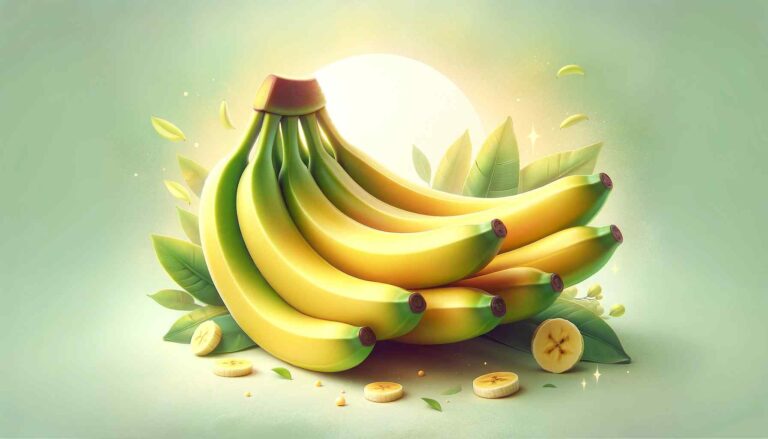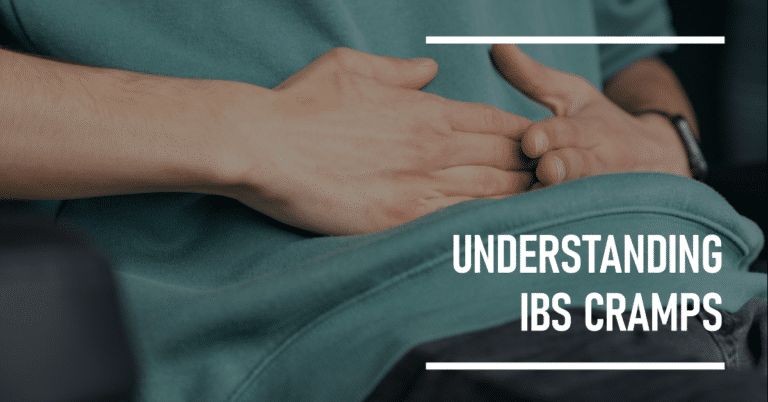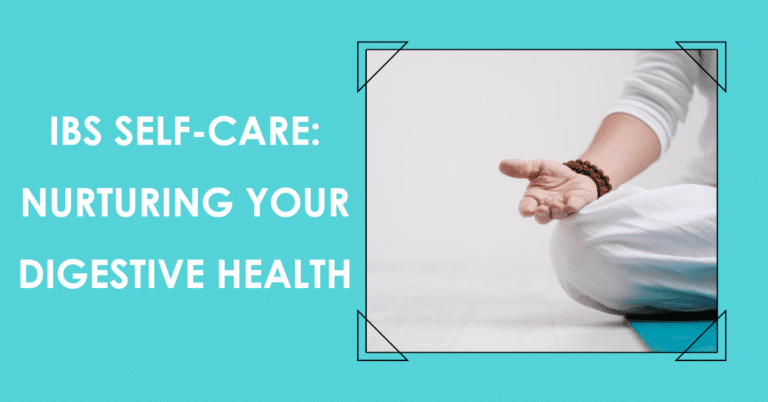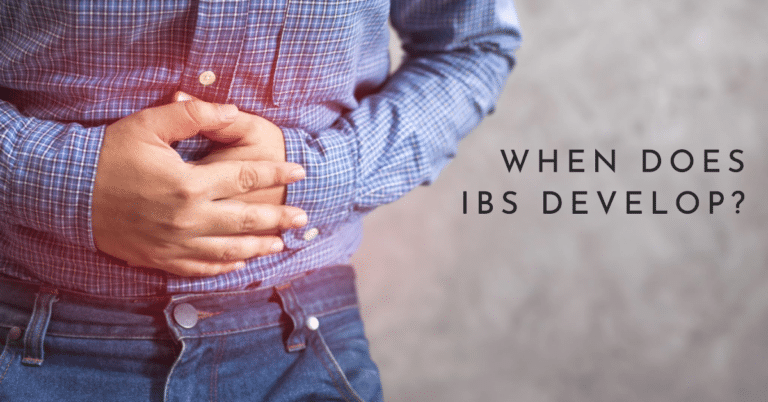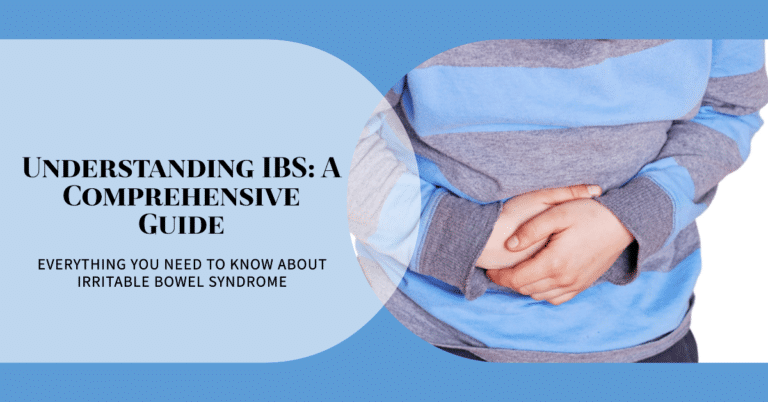What Makes IBS Worse? – Irritable Bowel Syndrome Triggers Explored
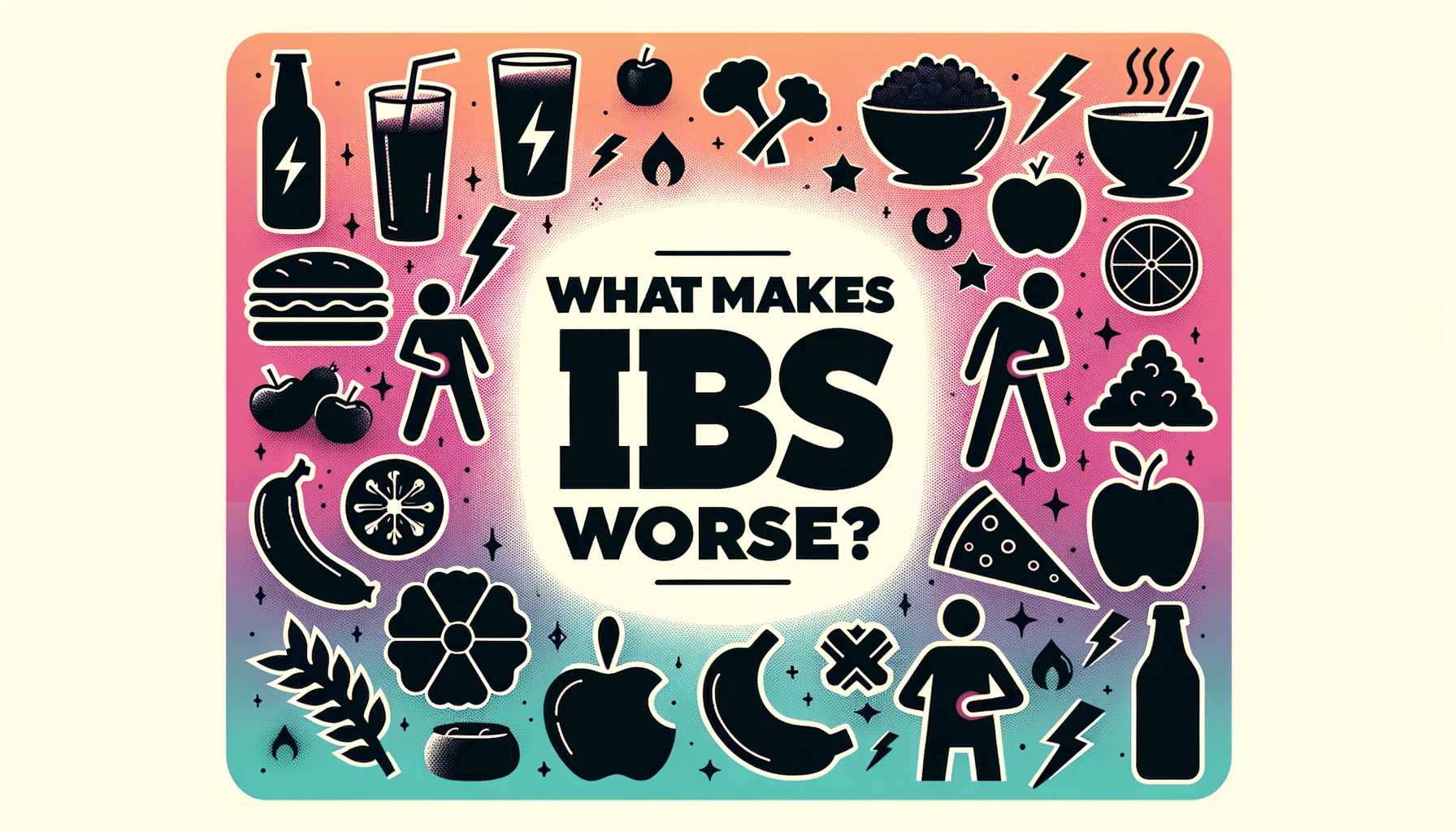
IBS is unpredictable. One day you feel fine, the next – agony. A list of foods like beans, onions, and dairy can trigger IBS and cause gas, diarrhea, and intestinal distress.
Sick of the rollercoaster? You’re not alone. IBS impacts up to 45 million Americans, disrupting their daily life often to a great extent.
But what exactly turns sporadic symptoms into full-blown flare-ups?
Read on to learn what makes IBS worse and how to beat IBS flare-ups once and for all.
What’s IBS, You Ask? – A Personal Account
Dealing with IBS is no picnic, that’s for sure. My cranky bowels are always causing a ruckus and keeping me on my toes.
When a flare up hits, it’s like my insides are hosting a wrestling match, and my stomach takes the beating.
The pain and bloating tap dance all over my gut while my digestive system break dances between constipation and diarrhea. Not exactly a thrill ride!
When I feel that familiar bubble and rumble brewing, I know I’m in for it. My sensitive stomach starts sending SOS signals for no good reason.
All I can do is brace myself and try to rein it in. Buscopan and peppermint oil capsules are my saviors when things get out of whack. They help settle my belly down and break up the IBS party happening inside.
Stress is a big trigger for me too. When work deadlines start piling up, my stomach knots up with it.
Taking time to decompress with deep breaths or meditation helps get me through the day.
I even gave the wonderful Nerva IBS a go and would highly recommend this form of gut-directed hypnotherapy to anyone!
Paying attention to trigger foods is key as well. If I know broccoli is gonna set me off, best to just avoid it for a bit.
Cracking the IBS Code: Unmasking the Triggers
1. Unmasking the Culprits: Ever wondered if certain foods were conspiring against your gut? Your hunch might be right! While IBS isn’t a cookie-cutter condition – different for everyone, mind you – certain foods could be contributing to your symptoms more than others.
2. Processed Predicaments: Processed foods – those tantalizing convenience bites – might be like a siren’s call, but they could be playing havoc with your intestines. Loaded with additives and often heavy on the greasy side, they might be triggering those bloaty episodes and unhappy bathroom trips.
3. The Veggies Vexation: Ah, veggies – the supposed kings and queens of a healthy diet. But hold your horses, for some of them can be double agents. Cruciferous vegetables like broccoli and brussels sprouts, while bursting with vitamins, might also be a source of your discomfort.
4. Lactose Lurking: Dairy products can be a tricky territory for people with IBS. That’s because some folks can’t digest lactose properly, leading to symptoms like cramps and, well, some rather embarrassing gas.
Turning the Tables: What to Avoid
| Food Frenemies | Why They’re Trouble | Better Alternatives |
|---|---|---|
| Processed Foods | Packed with additives, unhealthy fats, and mystery ingredients that could wreak havoc on sensitive tummies. | Opt for whole, unprocessed foods like lean meats, fruits, and veggies. |
| Cruciferous Veggies | These nutritional powerhouses can also cause bloating and gas due to their high fiber content. | Swap them for easier-to-digest options like carrots or spinach. |
| Dairy Products | The lactose in dairy might spell disaster for your belly if you’re lactose intolerant. | Consider lactose-free alternatives like almond or soy milk. |
A Pinch of Prevention: Managing IBS
1. Mind the Low FODMAP Diet: The Low FODMAP diet is like a superhero cape for IBS sufferers. It’s designed to help you pinpoint which foods might be your personal triggers, so you can avoid them like a pro. Think of it as your culinary treasure map to a happier gut.
2. Stress and the Gut: You know that feeling when stress clenches your stomach like a vice? Well, it’s not just in your head – stress can actually make IBS symptoms worse. Consider embracing relaxation techniques or even cognitive behavioral therapy to keep your gut in check.
3. When in Doubt, Fiber Out: Fiber is usually a friend, but not all fibers are created equal. Too much insoluble fiber from foods like dried fruits can be tough for your body to handle, potentially leading to constipation. Opt for soluble fiber sources like oats and bananas.
Parting Wisdom: Keep These Nuggets Close
- Stay Hydrated: Drinking enough water helps keep things moving smoothly through your digestive tract.
- Talk to Your Doc: If you suspect you’re dealing with IBS, don’t hesitate to consult a healthcare professional. They’re the experts, after all!
- Listen to Your Body: Everyone’s gut is unique, so pay attention to how your body reacts to different foods and adjust accordingly.
In the grand puzzle of life, your gut health is a significant piece.
By understanding the IBS triggers and mastering the art of avoiding certain foods that may make you feel worse, you’re taking a proactive step towards a happier, more comfortable you.
Remember, it’s all about finding what works best for your body. With a bit of trial and error, it’ll soon become a breeze.
Disclaimer: This content is based on my personal experience as an individual diagnosed with celiac disease and IBS (Irritable Bowel Syndrome) who follows a strict gluten-free diet. This does not constitute medical advice. Please consult a medical professional, nutritionist, or qualified dietitian for personalized, professional advice.

